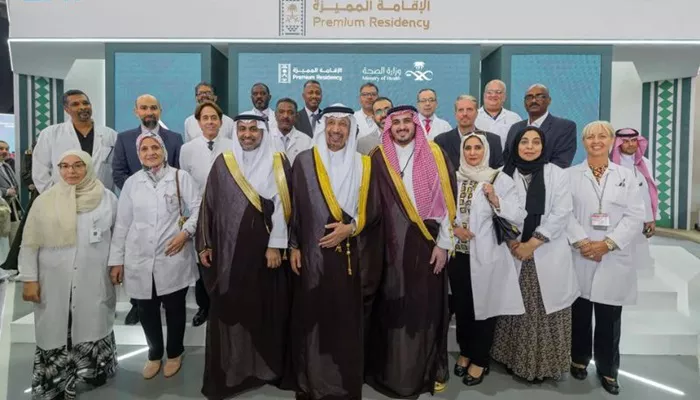At a panel discussion during the World Economic Forum (WEF) in Davos, Saudi Minister of Economy and Planning, Faisal Alibrahim, emphasized the vital role healthcare plays in the economic prosperity of nations, urging for greater investment in the sector as part of Saudi Arabia’s Vision 2030.
Alibrahim pointed out the paradox of the Kingdom’s investment priorities, noting, “We see an interesting story where we invest billions in energy, education, and other solutions, but the investments in healthcare seem to be taking a second priority.” He stressed that healthy, resilient, and productive human capital is crucial for sustained economic growth.
The session, which was a part of Saudi House—a key meeting point at the WEF for government officials, business leaders, and global stakeholders—was moderated by Faisal J. Abbas, editor-in-chief of Arab News. It also featured prominent health experts, including Dr. Sania Nishtar, CEO of Gavi, the Vaccine Alliance; Sir Jeremy Farrar, Chief Scientist at the World Health Organization (WHO); Rayan Fayez, Deputy CEO of NEOM; and Dr. Nouf Al-Numair, Secretary-General of the Saudi Ministerial Committee for Health in All Policies.
Vision 2030: A Blueprint for Health
Alibrahim reiterated that health is a key component of Saudi Arabia’s Vision 2030, the Kingdom’s ambitious reform plan aimed at diversifying the economy. He added, “It’s important for us to unlock the full potential of human capital in the Kingdom by making healthcare our utmost priority.”
Dr. Al-Numair, representing the Saudi Ministerial Committee for Health in All Policies, underscored the country’s commitment to integrating public health into every facet of governance. “Saudi Arabia has taken concrete and very clear steps to adopt health in all policies,” she said. The initiative began with a royal decree prioritizing public health in all laws and regulations, aimed at preventing diseases and enhancing life expectancy.
One of the committee’s key strategies focuses on reducing salt and bread consumption to tackle hypertension, a leading contributor to cardiovascular disease and mortality. “Eventually, this will increase life expectancy, so we have a clear understanding of what success looks like, which is linked to certain KPIs,” Al-Numair explained.
Vaccination and Preventative Healthcare
Dr. Sania Nishtar highlighted the importance of vaccination as a preventive health measure, particularly in the face of rising global demand. Despite opposition from some vaccine skeptics, Nishtar noted that many countries are increasingly prioritizing vaccines, and the challenge now lies in securing adequate resources to meet the demand. “We are looking at our resource envelope, and we’re trying to raise more money because the demand for vaccines from countries is so huge,” she said.
A Holistic Approach to Health and Well-being
Sir Jeremy Farrar, Chief Scientist at WHO, advocated for a more integrated approach to health, calling for the inclusion of health and science in various sectors such as education, transport, and governance. He emphasized that health should not merely be viewed through the lens of illness, but as a holistic component of well-being.
“A governance structure that ensures an inclusive voice for every ministry and every constituency is essential,” Farrar stated. He also argued that such an approach would enable countries to address both internal inequalities and those between nations.
NEOM’s Vision for Health
Rayan Fayez, Deputy CEO of NEOM, the Kingdom’s futuristic city project, emphasized the role of health in shaping the city’s long-term vision. Fayez explained that NEOM’s healthcare strategy is based on four principles: prevention, world-class treatment when necessary, leveraging technology, and global knowledge sharing.
“While many think of NEOM as a mega or giga project, it’s not just about real estate or infrastructure,” Fayez clarified. “Health and well-being are core parts of the 15 sectors that we’ve identified as the economic engines of NEOM.”
As Saudi Arabia continues to position itself as a global leader in innovation and development, its focus on healthcare as an essential pillar of its future strategy remains central to ensuring the long-term prosperity of its citizens and economy.
Related topic:
Autistic TGD Individuals Face Worse Healthcare, Study Reveals
Trump Reverses Key Biden Policies on First Day of Second Term
Dr. Arun Kumar Choudhury Honored with Lifetime Achievement Award

